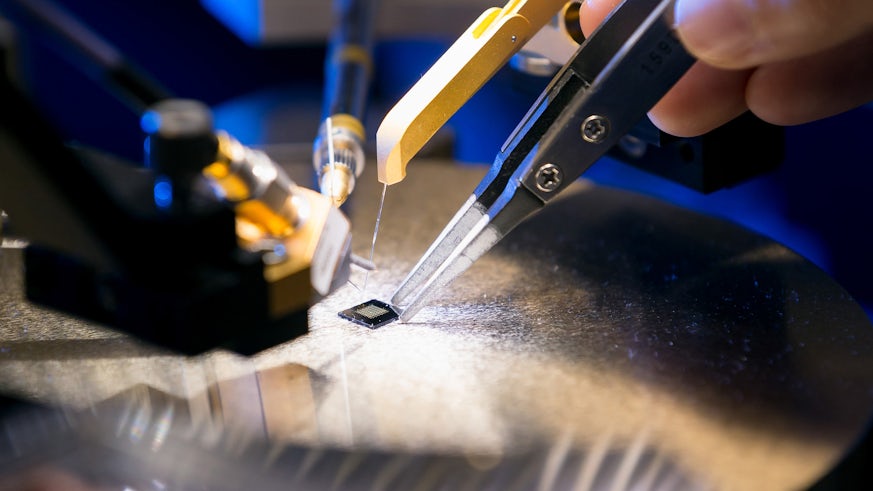New Investigator Award to develop improved soft image sensors for medical diagnostics
20 June 2022

Dr Bo Hou from the School of Physics and Astronomy has been awarded a prestigious New Investigator Award from the Engineering and Physical Sciences Research Council (EPSRC) to investigate improvements to soft image sensors which have become vital in many areas of our daily lives.
The project has been awarded funding of £343,000 from the EPSRC to help overcome current technical difficulties associated with soft image sensors when applied to medical diagnostics.
Dr Hou is part of the Condensed Matter and Photonics Group (CMP) in the School of Physics and Astronomy and a member of Institute for Compound Semiconductors (ICS) and a member of EPSRC CDT in Compound Semiconductor Manufacturing. Dr Hou will be working closely with researchers from the University of Bristol, the University of Cambridge and the University of Oxford. In addition to our university partners the work will be carried out in collaboration with TCL Corporate Research, Huawei UK, Glaia, 99P Recycling and Hamamatsu UK.
Soft image sensors are important for applications such as monitoring the physiological information of our bodies to provide non-invasive medical diagnostics. Current image sensing electronics, however, cannot easily be integrated into human bodies because they consist of rigid semiconductor photodetectors and are integrated with optical filters for colour discrimination. The filters create additional requirements on the optical path difference with confines the foldability and limits the resolution of the detector array.
In order to build soft image sensors that are suitable for medical diagnostics what is needed are filterless, foldable photodetectors which only detect light within a specific wavelength.
The recently discovered two-dimensionally (2D) Colloidal Quantum Wells (CQWs) are highly promising for soft image sensor applications, not only offering high colour purity with ultranarrow full-width at half-maximum (FWHM) but they also exhibit excellent compatibility with flexible electronics, such as unique stretching enhanced optical polarisation. These are problematic though because all the reported CQWs include toxic heavy metals (e.g., cadmium and lead), and little progress has been made on the fabrication of non-toxic CQWs or CQW narrowband photodetectors.
This research project aims to help overcome the current technical difficulties and find suitable semiconductors that use non-toxic elements and are able to efficiently detect light within a specific wavelength of interest at thicknesses as little as few hundred nanometres. If successful, we would be moving a step closer to an eco-friendly soft image sensor with the potential for many applications.
Professor Peter M Smowton, Head of School of Physics and Astronomy, Managing Director of Institute for Compound Semiconductors said “Dr Hou is a very talented young researcher with an emerging international reputation. He was recruited because of his broad skill set and to bring the solution-processed compound semiconductor quantum dot capability into the CMP group and ICS. The EPSRC Award will serve as a foundation for him to launch his successful career at Cardiff.”